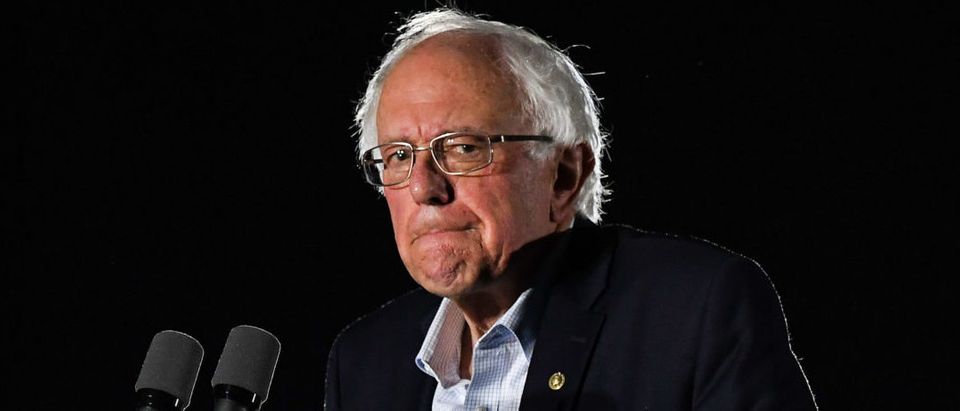The 2020 Democratic primary field is getting crowded, and contenders are busy trying to outbid each other with new anti-wealth policies. In the wake of Rep. Alexandria Ocasio-Cortez’s (D-N.Y.) proposal to raise the top marginal tax rate to 70 percent, Sen. Elizabeth Warren (D-Mass.) came out with a wealth tax that would confiscate two percent of one’s assets every year. Not willing to cede the mantle of most anti-wealth Democrat so easily, Vermont Sen. Bernie Sanders followed these proposals up with one of his own — an estate tax with a top rate of 77 percent.
Under Sanders’s plan, estate tax rates would jump to 45 percent on estate value between $3.5-10 million, 50 percent between $10-50 million, 55 percent between $50 million and $1 billion, and then a staggering 77 percent above $1 billion. Under current law, thanks to the Tax Cuts and Jobs Act, estates valued up to $11.2 million are exempted and the top tax rate is 40 percent. However, even before the passage of the TCJA, the top rate was the same, and estates up to $5.5 million were exempted.
Yet as Democrats in Congress quibble over what seasoning to use while eating the rich, Senate Republicans led by Sen. John Thune (R-S.D.) released a proposal to completely eliminate the death tax. Thune and his compatriots have the right of it, for both moral and policy reasons.
The moral reasons to do away with the estate tax are plain to see. Death should not be a taxable event, and families mourning the loss of a loved one have enough concerns without the tax collector knocking on their door. Besides that, estate taxation is a form of double taxation — money that gets taxed upon inheritance has already faced taxation (at least) once in the form of income taxes, property taxes, capital gains taxes, etc.
But the estate tax is bad policy as well. The knowledge that one’s estate will be taxed heavily upon passing discourages saving and investment, and instead encourages those at risk of getting hit by the estate tax to spend just to keep government from getting the money. However, an essential ingredient to long term growth is saving and investment, as these actions provide the funds for businesses to grow.
Similarly, the estate tax discourages entrepreneurship. A 2017 survey of family-owned businesses found that 19 percent of respondents found that the estate tax restricted their ability to add jobs. As the estate tax is assessed on the entire value of the estate, family-owned businesses in particular risk being hit with an estate tax that either forces or encourages heirs to sell — as many as 28 percent of family-owned businesses are sold or shuttered upon an owner’s death. The risk of growing one’s business is great enough, why add the possibility of increasing your heir’s tax bill on top of that?
And even those who do not end up with any liability under the estate tax do not get off scot-free. A study conducted in October of 2017 found that accountants spend nearly 2.1 million hours preparing for the estate tax — but at the same time, just 27 percent of those required to file an estate tax return actually had any tax liability. That’s a waste of time and money for those people who have to figure out how to file their estate tax returns (or, more likely, hire an accountant).
As Democrats continue their pre-primary slap-fight, Americans should discourage these anti-wealth proposals. Growing your own business is a cornerstone of the American dream; watching Uncle Sam hit your heirs with a hefty tax bill as you pass should not be.
Andrew Wilford is a policy analyst with the National Taxpayers Union Foundation, a nonprofit dedicated to tax policy education at all levels of government.
The views and opinions expressed in this commentary are those of the author and do not reflect the official position of The Daily Caller.


